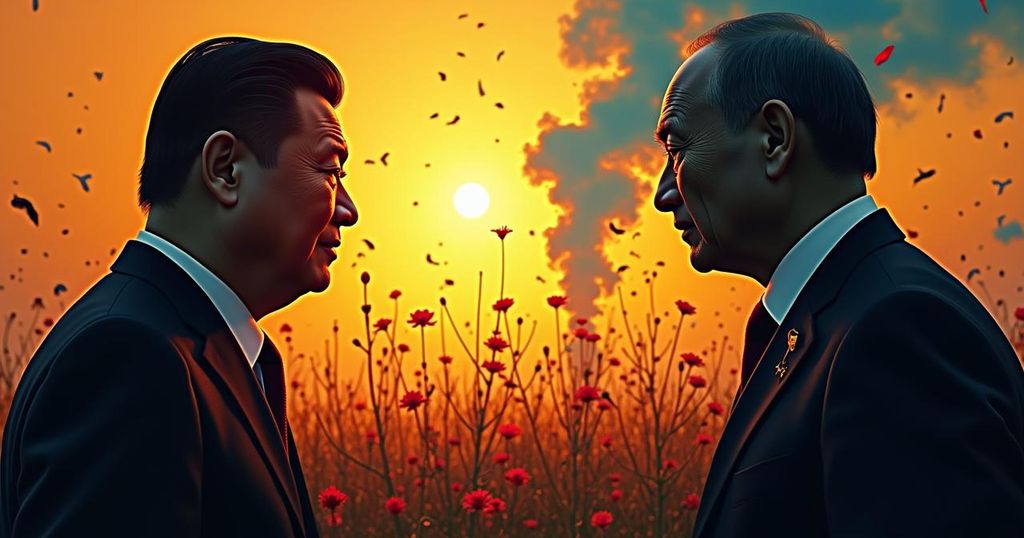China and Brazil Forge Ahead with Ukraine Peace Initiative Amidst Criticism from Zelenskiy
China and Brazil are advancing a peace initiative for Ukraine despite Ukrainian President Zelenskiy’s objections. At a UN meeting, they emphasized the importance of preventing war escalation and proposed continued discussions among developing nations for a peace framework. Zelenskiy criticized these alternative plans for potentially aiding Russia.
On the sidelines of the United Nations General Assembly, China and Brazil have reiterated their commitment to advancing a peace plan aimed at resolving the ongoing conflict in Ukraine, despite dismissals from Ukrainian President Volodymyr Zelenskiy regarding the initiative’s credibility. In a meeting attended by representatives from seventeen nations, including prominent members from the Global South, Chinese Foreign Minister Wang Yi and Brazilian foreign policy adviser Celso Amorim championed their proposal to mitigate the conflict and prevent escalation, particularly concerning the potential use of weapons of mass destruction. Wang expressed that fostering amicable relations between Russia and Ukraine is imperative, stating that “Russia and Ukraine are neighbors that cannot be moved away from each other and amity is the only realistic option.” He called for international support for a peace conference that includes both nations to facilitate dialogue and resolution. The meeting saw participation from countries such as Indonesia, South Africa, and Turkey, who collectively endorsed a communique building on a previous six-point peace plan introduced earlier by the two nations. Amorim suggested that these discussions would continue under a newly formed grouping dubbed “friends for peace.” It is noteworthy that the backdrop of these discussions includes China’s 2022 partnership agreement with Russia, wherein Chinese President Xi Jinping and Russian President Vladimir Putin established a “no limits” cooperative pact prior to the invasion of Ukraine. While China maintains that it does not provide military assistance to Russia, Western nations allege that Chinese enterprises contribute materials utilized in Russian weapon production. President Zelenskiy has expressed his concerns regarding these alternative peace proposals, suggesting they provide the Kremlin with unnecessary political space to prolong the conflict. In response to these critiques, Amorim maintained a neutral stance, focusing on the objective of facilitating peace rather than engaging in tit-for-tat responses.
The ongoing war in Ukraine, sparked by Russia’s invasion in 2022, has drawn international attention and prompted various countries to seek resolution strategies. President Zelenskiy of Ukraine has proposed a specific framework for peace which emphasizes Ukraine’s sovereignty and territorial integrity. In contrast, nations such as China and Brazil are attempting to create a more inclusive dialogue involving developing countries in the Global South, reflective of their geopolitical interests and understanding of the conflict’s dynamics. This situation underscores the complexity of international relations where differing narratives and approaches exist concerning the conflict and its resolution.
In summary, China and Brazil’s initiative to pursue a peace plan for Ukraine, amidst criticisms from President Zelenskiy, highlights the divergent global perspectives on resolving the conflict. The involvement of various nations from the Global South indicates a need for broader dialogue, although Zelenskiy’s apprehensions reflect the challenge of negotiating peace with a nation perceived to be making aggressive moves. As discussions continue under the auspices of ‘friends for peace,’ the path towards a sustainable resolution remains fraught with challenges.
Original Source: www.usnews.com




Post Comment